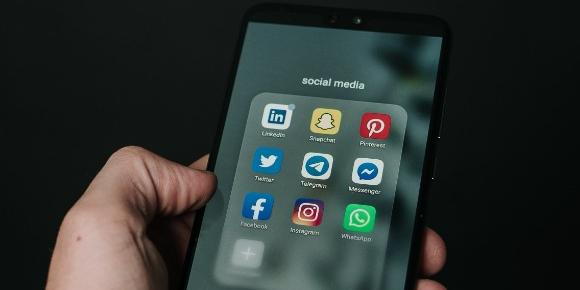
In the modern-day world, social media has become an integral part of human life. It is often estimated that over half the world's population has access to some type of social media platform. While these platforms have provided lots of benefits to us, they have certainly come at a price.
In recent times, for example, an increasing body of research has suggested that there is a link between social media use and depression. Naturally, this has raised concerns among parents, teachers, and even governments. Here are some of the ways social media platforms can harm our mental health and lead to depression.
The Illusion of Perfection- It is a known fact that people mostly post the good aspects of their lives on social media. Whether it is good news, photos, or events, they make sure to make things look as perfect as possible. So, people’s profiles are essentially curated and filtered versions of their lives that showcase only the best highlights.
Naturally, when you are exposed to these seemingly perfect lives of people, it can lead to feelings of inadequacy and trigger symptoms of depression. It can fuel comparisons and create unrealistic expectations, which can worsen those symptoms.
Cyberbullying and Online Harassment- This has been a major concern for people ever since the internet and social media platforms went mainstream. It is common knowledge that cyberbullying and online harassment are quite prevalent on social media. The situation has become so worrying that several countries have even passed laws regarding this issue.
From an individual’s perspective, negative interactions can profoundly impact their self-esteem, self-confidence, and behavioral pattern. This can lead to a degradation of their mental health, which can lead to increased feelings of depression, anxiety, and social isolation.
Fear of Missing Out (FOMO)- This is something that is quite common in us humans. As we’re social animals, we don’t like to miss out on something when so many others are taking part in it. This is called fear of missing out, or FOMO. While it is prevalent in the real world, it is much more intensified on social media.
This is because users constantly see updates on parties, vacations, and social gatherings that they were not invited to. They can also see updates regarding materialistic possessions that they cannot afford. This can lead to feelings of exclusion and loneliness, and worsen a person’s symptoms.
Sleep Disruption- The rise of smartphones and other portable devices such as laptops has changed our sleep patterns. A lot of people don’t sleep at the ideal time because they are not able to plug out of the online world. And a major culprit in this case is social media. People keep scrolling their feeds, completely oblivious to the passage of time.
This excessive use of social media, especially before bed, can disrupt sleep patterns and quality. As we all know, when we don’t get proper or enough sleep, we feel groggy and are not able to perform at our best. And when sleep deprivation becomes a daily thing, it can eventually lead to depression..
Suggestions:
- Limit use- Use the tracking feature to monitor your time spent on social platforms- you will be surprised at how much time are you actually scrolling! Set a realistic goal to how much energy, thought, and time you are willing to give to social media each day. Replace some of that time with healthier activities like gardening, going for a walk, or just spending time with nature.
- Turn off notifications- Resist the temptation every time you hear a ding or buzz alerting you to activity. Set limits to how often you check your feeds- start small, then gradually increase.
- Power off devices- Turn devices off or set a focus for specific periods of each day and do not charge your phone in your bedroom overnight.
- Unfollow toxic accounts- Don't feed your brain mental negativity by continuing to see posts or receive notifications to accounts/sites that make you feel bad about yourself or make you feel like you need to change who you are.
- Create a Safe Experience- Understand the potential pitfalls of social media. Turn off location-enabled services, set your privacy settings, and understand that anything posted online may be permanent. Make healthy decisions online!
If you are struggling with the negative impact of social media on your mental health and relationships, it is important to seek support by talking to a trusted friend or family member, reaching out to a mental health professional, or joining a support group. By being mindful of use and prioritizing in-person connections, social media can have positive effects on mental health and relationships. Use social media as a tool for positive communication and support!
